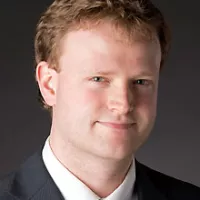Study
| EST. READ TIME 2 MIN.Top 20 per cent of families pay 56 per cent of all taxes in Canada
Measuring the Distribution of Taxes in Canada: Do the Rich Pay Their “Fair Share”?
There is a common and mistaken impression in Canada that the country’s top earners are getting away with paying relatively little tax. This misperception has been fuelled by governments, especially the current federal government, which has invoked “tax fairness” to justify recent tax changes such as the creation of a new and higher top personal income tax rate of 33 percent—an increase from the previous top federal rate of 29 percent.
The fact is that Canada’s top income-earners pay a disproportionate—and growing—share of all taxes collected by government.
Measuring the Distribution of Taxes in Canada: Do the Rich Pay Their “Fair Share”? finds that this year, the top 20 per cent of income earners in Canada—families with an annual income greater than $186,875—will earn 49.1 per cent of all income in Canada but pay 55.9 per cent of all taxes including not just income taxes, but payroll taxes, sales taxes and property taxes, among others.
The discrepancy is even more pronounced for the top one per cent of earners. While this group will pay 14.7 per cent of all taxes in 2017 (up from 11.3 per cent in 1997), it will earn a smaller percentage (10.7 per cent) of all income.
By comparison, the bottom 50 per cent of income-earning families in Canada earn 20 per cent of all income, but pay just 14.6 per cent of all taxes.
When looking at income taxes alone, the top one per cent will pay 17.9 per cent of all federal and provincial income taxes, while the bottom 50 per cent will pay nine per cent of all income taxes this year.
Taxing top income earners may appear to be a simple solution to inequality, but doing so comes with considerable costs. Further increases to marginal tax rates on upper earners would have deleterious consequences on the economy and the general prosperity of Canadians. Those who want to see taxes raised further on top earners must recognize that there are considerable economic costs to such policies.
This is the final chapter in a new book on income inequality published by the Fraser Institute.



